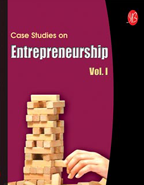|
Executive Interviews: Interview with Geoffrey Moore on Innovation
January 2008 - By Dr. Nagendra V Chowdary
 Geoffrey Moore
Geoffrey Moore Managing Director,
TCG Advisors, Venture Partner, Mohr Davidow Ventures. 
A word about TCG Advisors.
TCG Advisors is a strategyconsulting firm located in Silicon Valley that specializes in working with high-tech clients including Adobe, Cisco, HP, Qualcomm, and SAP. Additionally, I am a venture partner at Mohr Davidow Ventures, an early-stage venture capital firm also in Silicon Valley.
-
What gives you more satisfaction: as an author or as a consultant? In which role do you think you had made commendable contribution to the business thinking?
Authoring creates the occasion and the vocabulary for dialog. Consulting brings those dialogs to fruition—and in the
|
|
process inevitably changes the vocabulary. After a while the vocabulary evolves so much, you have to write a new book, and the cycle repeats itself, only stopping when your new vocabulary is either not that new or not that useful. Being in service to others is the basis of my satisfaction regardless of what part of the cycle we are in. -
Amongst three of your books, Crossing the Chasm, Inside the Tornado and, Dealing with Darwin:How Great Companies Innovate at Every Phase of Their Evolution, which one do you think would have long-lasting impact and why?
Crossing the Chasm is the one I am best known for. It, and its companion, Inside the Tornado, are focused on start-ups growing to maturity. By contrast, Dealing with Darwin is focused on mature enterprises and their challenges with renewing themselves. My venture work leverages the first two, my consulting work the last. -
What is your assessment of technology startups, now? How is the scenario different from the time Crossing the Chasm was written?
Venture startups are a much broader class today than in 1990 when the book was first written. Then most startups were in the computing sector, focusing on enterprise computing, focused on US-based customers. Today Silicon Valley startups are also in clean energy, genomic medicine, Web 2.0; they address consumer markets as well as enterprise; they focus outside the US as well as inside. All these dynamics still face chasms, but the kind of chasms they face, and the techniques for crossing them, can be different. This is a classic case where it is time to update the vocabulary. -
You observed, "… The point of
greatest peril in the development of a
high-tech market lies in making the
transition from an early market
dominated by a few visionary
customers to a mainstream market
dominated by a large block of
customers who are predominantly
pragmatists in orientation. The gap
between these two markets,
heretofore ignored, is in fact so
significant as to warrant being called
chasm, and crossing this chasm
must be the primary focus of any
long-term high-tech marketing plan."
How is this chasm played out in the
case of Google's global forays (where
major threats are coming not from
business quarters, but from
governments in Germany, France,
Japan and China)?
Google did not have to cross a
Technology Adoption Life Cycle
chasm. Yahoo, Inktomi, Ask Jeeves,
and a host of others had already
made search a mainstream
technology. The chasm Google faces
is in reorchestrating the media and
advertising industry models. One of the defenses that legacy incumbents
can use in such battles is political or
regulatory influence, as your
examples illustrate. -
How easy or difficult is it to
discover a chasm in the fastchanging
technology cycles?
Let's just say it is very easy to fall into
a chasm, and once you have fallen, it
is very easy to detect that you have.
Foreseeing the chasm and avoiding
it, on the other hand, is very
challenging. Entrepreneurs, and
their investors, have to assume they
will fall at one point or another and
therefore have to plan for how to get
back on their feet quickly. -
How do you define a great
company? Does a company become a
great company because it innovates
continuously or is it vice versa?
A great company serves the world in
a way that causes the world to want it
to thrive and grow. Typically this
means it addresses a deep and
pervasive need in what would
otherwise be an underserved market
and does so in a way that creates
positive outcomes for as many as
possible. -
What are disruptive technologies
and how have they influenced the
business across the globe? Is it
correct to assume that disruptivetechnologies
are to be associated
more with tech-related industries or
is it that they can also be found in
typical manufacturing and services
sector too?
Disruptive technologies provide a
dramatic improvement in either the
end result or the cost of achieving
that result, but at the cost of having to
abandon the established investment
and transition to a new platform.
They happen in all industries
eventually, but much more
frequently in high-tech.
1.
ICMR Innovation Case Studies
2. ICMR
Case Collection
3.
Case Study Volumes
|


